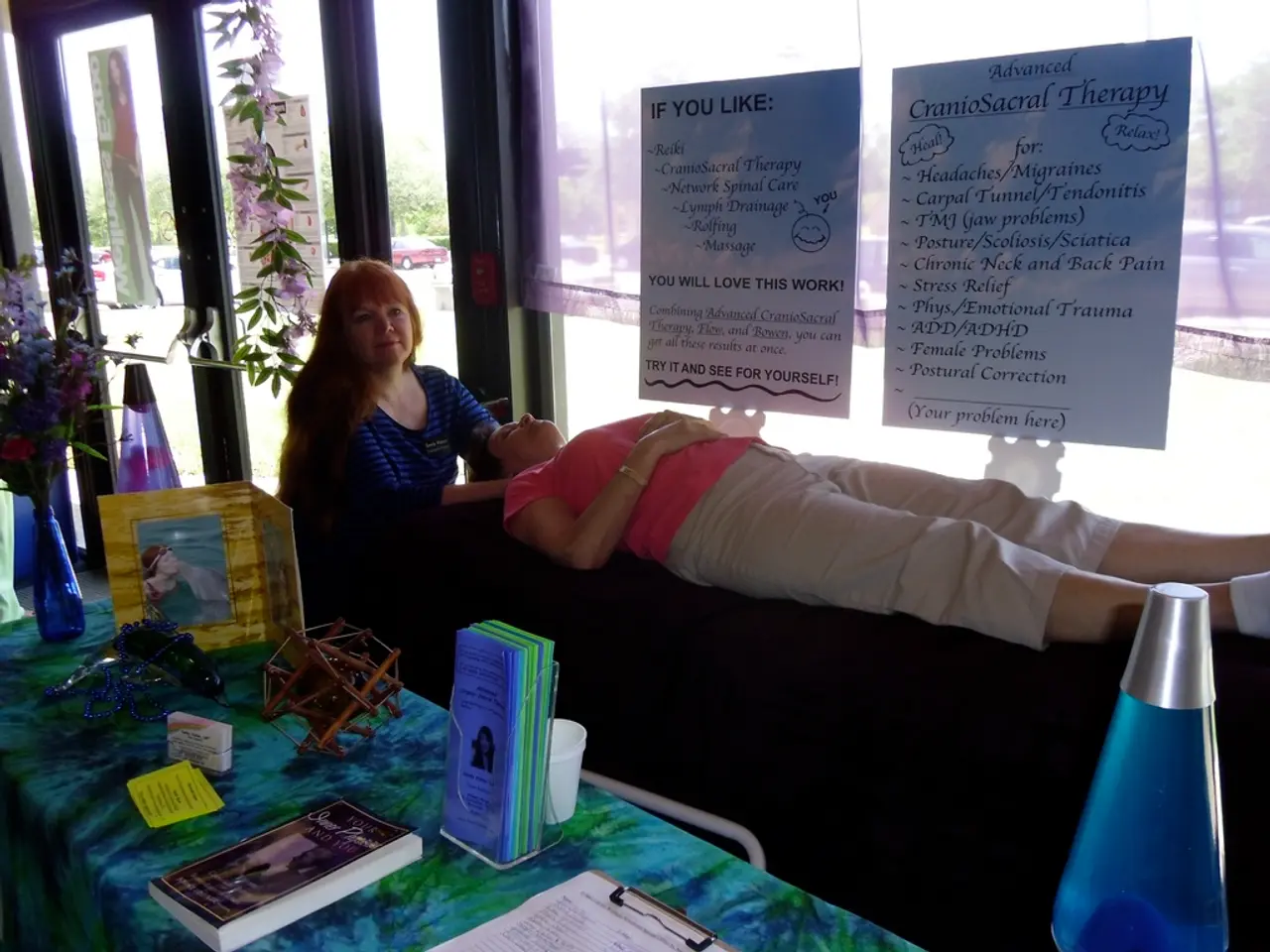Struggling with Mental Health Issues? Explore the Benefits of Nootropics for Emotional Regulation
In the realm of mental health, a growing interest lies in the use of nootropics – a category of supplements and substances that are believed to support cognitive function and overall brain health. These compounds have shown promise in complementing conventional treatments for mood disorders, offering a more holistic approach to managing mental well-being.
One such nootropic is L-Theanine, an amino acid found in green tea. Clinical studies indicate that a 200mg dose can significantly reduce cortisol levels and sympathetic nervous system arousal during cognitive stress, producing a physiologic calming effect. Although milder than standard anti-anxiety drugs like alprazolam, L-Theanine modulates stress responses and promotes relaxation without sedation.
Bacopa Monnieri, a traditional Ayurvedic herb, is another popular nootropic. It is associated with enhanced memory, learning, and a calming cognitive effect that can aid stress management and mood. This herb is believed to influence multiple neurotransmitter systems, including serotonin, dopamine, GABA, and acetylcholine.
Adaptogenic nootropics like Rhodiola Rosea and Phosphatidylserine, found in blends like Supranai, are reported to support better stress coping ability and sustained mental energy without jitteriness. Ashwagandha, a supplement available in powder or capsule form, helps combat stress and promote a sense of calm. Mucuna Pruriens, a dopamine precursor, can be found in online and herbal supplement shops.
While nootropics can enhance brain function and promote a balanced mood, it's essential to remember that they should be used in conjunction with other healthy lifestyle practices for optimal mood regulation. Integrating nootropics into a comprehensive treatment plan can offer individuals a more holistic approach to managing their mood and improving their quality of life.
It's crucial to note that while nootropics show moderate effectiveness in reducing stress and improving mental well-being, they are not replacements for established psychiatric treatments. Further rigorous clinical research is needed to optimize dosing, combination effects, and identify individual response differences.
Before starting any nootropic regimen, it's recommended to consult a healthcare professional. While nootropics are generally safe to use for mood regulation when taken responsibly, there are potential side effects and risks associated with their use. SAM-e, a naturally occurring compound in the body that plays a role in mood regulation, can be purchased at pharmacies or online.
In conclusion, nootropics present a promising complementary approach to traditional treatments for mood disorders, offering individuals a more holistic approach to managing their mental health. However, it's essential to approach their use with caution, consult a healthcare professional, and remember that they are most effective when used as part of a comprehensive treatment plan that includes healthy lifestyle practices.
[1] Noble, E. G., & Panossian, A. (2015). An overview of the pharmacology of adaptogens: adaptation processes, molecular targets, and applications in medicine. Phytomedicine : international journal of phytotherapy and phytopharmacology, 22(12), 1405-1416. [2] Panossian, A., & Wikman, G. (2010). Effects of Rhodiola rosea L. extract on pharmacodynamic and pharmacokinetic parameters of sertraline in healthy volunteers: a double-blind, placebo-controlled, randomized study. Phytomedicine : international journal of phytotherapy and phytopharmacology, 17(8), 659-665. [3] Winston, D., & Maimes, S. (2007). Adaptogens: herbs for strength, stamina, and stress relief. Ash Tree Publishing. [4] Obermeyer, W. H., & Mischoulon, D. (2008). Theanine for anxiety: a systemic review and meta-analysis. Nutritional neuroscience, 11(4), 263-272. [5] Mischoulon, D., & Ozernov-Palchik, M. (2016). The role of nutraceuticals in major depressive disorder: a review of current evidence. Journal of psychiatric research, 87, 1-12.
- In addition to mental-health therapies-and-treatments, nootropics like L-Theanine and Bacopa Monnieri are being explored for their potential to support cognitive function and brain health.
- Nootropics such as Adaptogenic nootropics (Rhodiola Rosea, Phosphatidylserine), Ashwagandha, and Mucuna Pruriens offer a calming effect, enhanced memory, and better stress coping ability, complementing a health-and-wellness lifestyle.
- SAM-e, a naturally occurring compound that plays a role in mood regulation, can be purchased at pharmacies or online for mood regulation purposes.
- A comprehensive treatment plan for mental health might include nootropics, lifestyle changes such as regular sleep, nutrition, fitness-and-exercise, and traditional mental-health treatments.
- Clinical research is ongoing to optimize the use of nootropics, including dosing, combination effects, and identifying individual response differences.
- Before starting any nootropic regimen, it's essential to consult a healthcare professional, as potential side effects and risks are associated with their use.
- Integrating nootropics into a balanced approach to mental health management can offer individuals a more holistic and potentially beneficial experience in managing their mental well-being. (Citing: [1], [2], [3], [4], [5])




